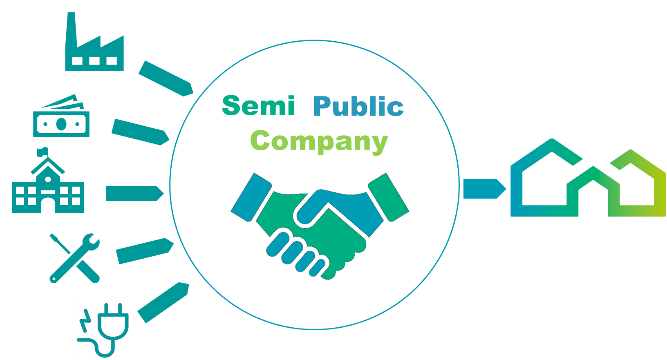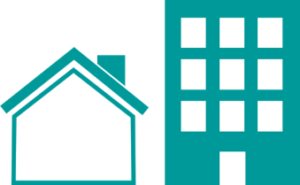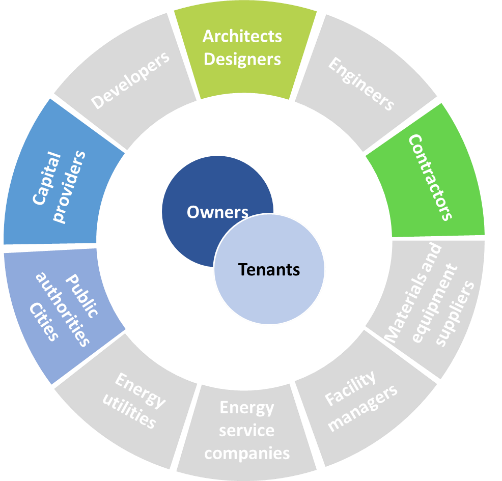One-Stop-Shop provided by semi-public entities
Description

The collaborative model presented hereafter differs from the traditional PPP model and presents the model of One Stop Shops provided by semi-public entities, where local authorities and private companies join forces to provide sustainable OSS structures – so called renovation platforms – to support the residential renovation market.
"What” (value proposition)
The business model provides the following advantages for the customer:
- Holistic and owner-centric approach to the renovation project, with the support of the renovation platform team
- Effective process management – the renovation platform team provides technical assistance and administrative support. It acts as a facilitator and, if asked by the owner(s), as a general contractor
- Support of a network of trained and referenced workers and contractors
- Pre-financing of incentives and in some cases third-party financing of the initial investment
- Comprehensive renovation intervention (not limited to energy), including correct evaluation from the life-cycle perspective of energy-efficiency and overall costs. This also enables to better assess the financial risk and support the application for a loan.
"Who” (target customer)
The market segments targeted by this business mod el are residential buildings, mostly owner-occupied single-family houses. Condominiums are also targeted.
el are residential buildings, mostly owner-occupied single-family houses. Condominiums are also targeted.
"How” (value chain, activities, resources)
The “renovation platforms” providing the OSS are semi-public companies jointly owned by local governments/ authorities and private entities such as banks. They develop a network of trained contractors / installers as well as key partnerships with banks (in some cases they can themselves provide third-party financing). The renovation platform acts as a facilitator between all involved stakeholders, and for specific project – if requested by the owner(s), it can itself be the general contractor.

"Why” (revenue model and cost structure)
The costs of the renovation platform are mostly related to staff and marketing costs. Liquidities are also required to cover the pre-financing of investments and, when relevant, the loans to customers.
Revenue types vary from one platform to the other and may include annual fees from the registered contractors / installers (who benefit from training and referencing) and fixed fees from customers (depending on the level of service requested). Usually public funding (regional, national or European – e.g. ELENA) is required to ensure the financial sustainability of the platform.





